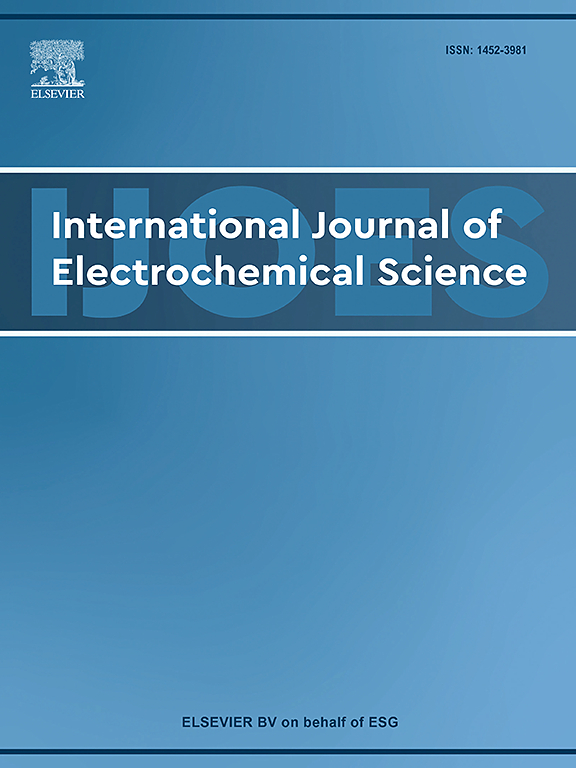电氧化技术在垃圾渗滤液处理中的应用策略综述
IF 2.4
4区 化学
Q4 ELECTROCHEMISTRY
International Journal of Electrochemical Science
Pub Date : 2025-05-27
DOI:10.1016/j.ijoes.2025.101078
引用次数: 0
摘要
由于垃圾渗滤液成分复杂,污染物浓度高,处理垃圾渗滤液仍然是一个重大的环境挑战。电化学氧化法(EO)具有氧化能力强、反应条件温和、无二次污染等优点,是处理渗滤液的有效方法。然而,目前的研究主要集中在阳极材料的改性上,不同类型的比较研究有限,对实际应用的工艺设计关注不足。为了解决这些空白,本文深入研究了EO过程中污染物的降解机制,包括直接氧化途径和多种反应物质介导的间接氧化。系统分析了掺硼金刚石(BDD)和各种尺寸稳定阳极(DSA)在垃圾渗滤液活化活性物质处理中的性能。提出了四种将EO与其他技术相结合的实用流程,并讨论了它们各自的优缺点和适用的应用场景。此外,我们还讨论了氧化过程中氯化副产物的形成机理和减少二次污染的工程控制策略。本文综述为阳极材料的选择和优化提供了全面的参考,为混合工艺的设计提供了有价值的见解,以提高处理效率和提高实际适用性。本文章由计算机程序翻译,如有差异,请以英文原文为准。
A review on the application strategies of electrooxidation technology for landfill leachate treatment
Landfill leachate treatment remains a significant environmental challenge due to its complex composition and high pollutant concentrations. Electrochemical oxidation (EO) has emerged as an effective method for leachate treatment, offering advantages such as strong oxidation capability, mild reaction conditions, and no secondary pollution. However, current research primarily focuses on modifying anode materials, with limited comparative studies across different types and insufficient attention to process design for real-world applications. To address these gaps, this review thoroughly examines the degradation mechanisms of pollutants during EO, including direct oxidation pathways and indirect oxidation mediated by multiple reactive species. It also systematically analyzes the properties of boron-doped diamond (BDD) and various dimensionally stable anodes (DSA) in activating reactive species for landfill leachate treatment. Four practical processes that combine EO with other technologies are proposed, along with a discussion of their respective advantages, disadvantages, and suitable application scenarios. Additionally, we discussed the formation mechanisms of chlorinated by-products in EO and engineering control strategies to mitigate secondary pollution. This review provides a comprehensive reference for selecting and optimizing anode materials, offering valuable insights into the design of hybrid processes to enhance treatment efficiency and improve real-world applicability.
求助全文
通过发布文献求助,成功后即可免费获取论文全文。
去求助
来源期刊
CiteScore
3.00
自引率
20.00%
发文量
714
审稿时长
2.6 months
期刊介绍:
International Journal of Electrochemical Science is a peer-reviewed, open access journal that publishes original research articles, short communications as well as review articles in all areas of electrochemistry: Scope - Theoretical and Computational Electrochemistry - Processes on Electrodes - Electroanalytical Chemistry and Sensor Science - Corrosion - Electrochemical Energy Conversion and Storage - Electrochemical Engineering - Coatings - Electrochemical Synthesis - Bioelectrochemistry - Molecular Electrochemistry

 求助内容:
求助内容: 应助结果提醒方式:
应助结果提醒方式:


